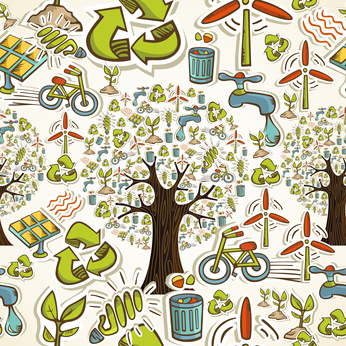 London – An extra 140 million tonnes of waste could be recycled if all products are consciously designed to maximise end-life recovery of components and material commodities, according to a new report from the waste and resource industry body, the Environmental Services Association (ESA).
London – An extra 140 million tonnes of waste could be recycled if all products are consciously designed to maximise end-life recovery of components and material commodities, according to a new report from the waste and resource industry body, the Environmental Services Association (ESA).
By helping ensure that products and their packaging can be easily reused, dismantled and recycled, the waste and recovery sector could help generate a further £ 1.4 bn for the UK economy in extra recyclate revenues.
“80% of the environmental impact of a product is determined at design stage,” says ESA’s Chairman, David Palmer Jones. “By helping manufacturers ‘design for recovery’, the waste and resources sector can make a significant contribution to the creation of a zero-waste circular economy.”
“If we work together to change the way products are designed, we can avoid the current trend of a third of potentially recyclable material being lost to the economy. This is vital for resource efficiency and security, and to reduce environmental impacts including greenhouse gas emissions,” Mr. Palmer Jones said..
Sophie Thomas, Co-Director of Design at the Royal Society for the Encouragement of Arts, Manufactures and Commerce (RSA) commented, “Getting recycling and recovery experts working with designers is essential if we are to see a new generation of products which are built for material recovery. We are delighted that the Environmental Services Association has committed to finding suitable experts from its membership and we look forward to working with the Association to take this forward.”
In a circular economy, rather than being sent to waste after use, materials are reclaimed and reused or recycled as secondary raw materials, or converted into soil nutrients as compost and fertiliser, with any residual waste generating energy.
The creation of a circular economy in the UK could generate 50,000 jobs and boost GDP by £3 billion. As well as improving the balance of payments by £20 billion and improving the UK’s economic outlook this would result in more sustainable economic growth and reduce pressure on resources and supply chains.
The ESA’s ‘Going for Growth’ report examines in detail the contribution the waste and resource industry can make to a circular economy and provides ten recommendations for policymakers and other stakeholders which will help bring it closer to reality.
According to the ESA’s report, the global economy has followed a linear pattern of production and consumption for the past 150 years, but with growing global population rates and increased levels of consumption, this model is becoming unsustainable. In order to maintain rising living standards and remove the pressure on the earth’s increasingly strained resources, a new model is required.
“The waste management industry sits at the heart of the development of a circular economy,” says Mr. Palmer-Jones, “Our members are on the frontline as collectors and processors of the raw materials which are then injected back into the economy. The future of our industry is to turn all waste into a productive resource by using all forms of available technology.”
‘Going for Growth’ makes ten recommendations for policymakers and stakeholders in the circular economy:
- Waste management companies to contribute experts to the ‘design for recyclability’ spaces proposed by RSA
- EU to use powers within the Eco Design Directive to set recyclability requirements for selected products
- A BIS Ministerial post should be created to lead on Resource Efficiency across Government, linking the current emphasis on industrial policy with the material resources agenda
- EU should consider adding products with high recycled content to list of VAT reduced goods
- Specifications for recycled products/content in Government Buying Standards to be increased
- Separate food waste collections to become widespread for households and businesses
- Business Parks, Business Improvement Districts and other clusters of SMEs to facilitate collective long term contracts for recyclate collections
- Development of standard clauses in local authority collection contracts to enable better allocation of recyclate price risk between partners
- Green Investment Bank to consider developing ‘insurance products’ that would underwrite elements of waste volume/recyclate price risk
- MRF sampling proposals to be strengthened in line with ESA proposals to Department for Environment, Food and Rural Affairs (Defra)















